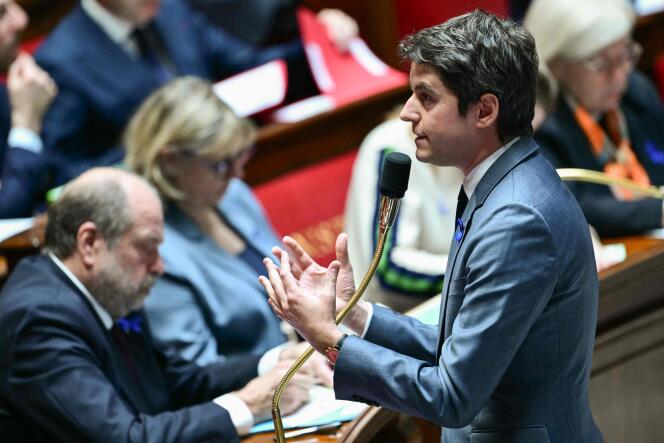


The French government's new bill to reform the country's unemployment insurance system has rocked their governing coalition. Four months after the debates on its immigration law that divided the ranks of Macron-aligned elected representatives, several MPs from the presidential bloc have once again raised a dissonant voice, this time over the reduction in jobseekers' unemployment benefits that Prime Minister Gabriel Attal announced.
Most of the criticism has come from politicians on the left wing of the government's coalition. This was notably the case of the Assemblée Nationale's president, Yaël Braun-Pivet, who called on the government to delay the bill, on Tuesday, April 2. Pointing out that the government has "reformed the unemployment insurance system" several times and has "already reduced the duration of compensation," she stressed on Franceinfo public radio station that these reforms should first be "evaluated" before a new one is considered. Two days earlier, the former transport minister, Clément Beaune, said he was "cautious" regarding this new reform, and warned of the risk of putting the most vulnerable at greater risk "if we move toward parameters that are too harsh."
Attal confirmed that a new tightening of the screws on the unemployed was in the works on Wednesday, March 27. The option has been on the government's drawing board since the end of 2023. The prime minister announced that "a truly comprehensive" reform would be drawn up by "the summer," "so that it could come into force in the autumn." It would be the fourth since Emmanuel Macron came to power in 2017.
While indicating that a "framework document" would be sent to labor unions and employers' organizations – who, in the French system, are normally in charge of defining the rules regarding unemployment benefits – to define the parameters of negotiations between management and unions, the prime minister mentioned the options the government had in mind: Reducing the duration of benefits, increasing the period of affiliation (the length of time that a person must work to qualify for unemployment benefits) and lowering the level of benefits.
After the 2018, 2019 and 2023 reforms, "it's not necessarily good practice to reform a major issue so quickly, yet again, without having been able to look at the effects produced by the previous reform," emphasized Braun-Pivet on Tuesday.
Aware of the uproar his statements have caused within the ranks of his own coalition, Attal appeared at the weekly meeting of his Renaissance party's group of MPs at the Assemblée Nationale on Tuesday morning to justify his plan. The prime minister there defended the reform as an "incentive to work," without necessarily being aimed at cutting costs. This was in response to criticisms from Sacha Houlié who, on March 31, said on the radio that the reform's "motivation" was "not to return people to employment," but rather "a cost-cutting measure." "Do I think we need to take a cost-cutting measure on the unemployed today? I don't think so," added this key figure of the left wing of the majority.
You have 64.69% of this article left to read. The rest is for subscribers only.
